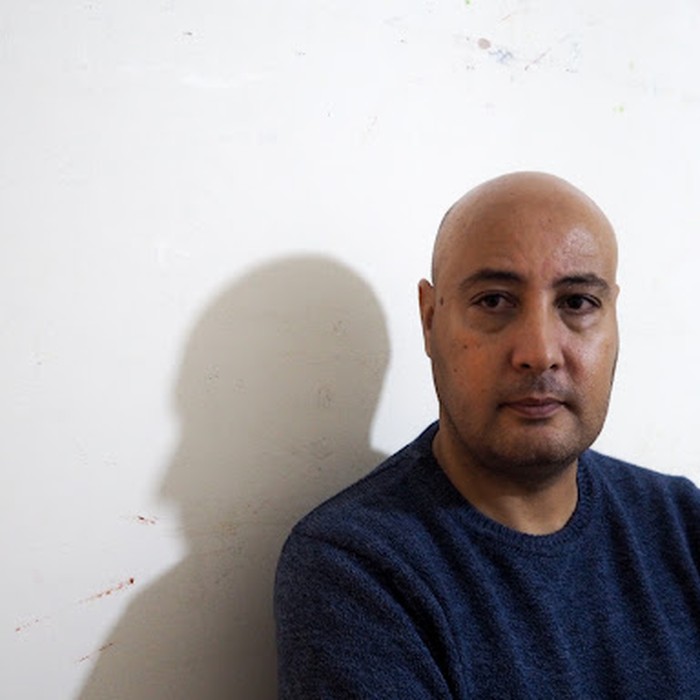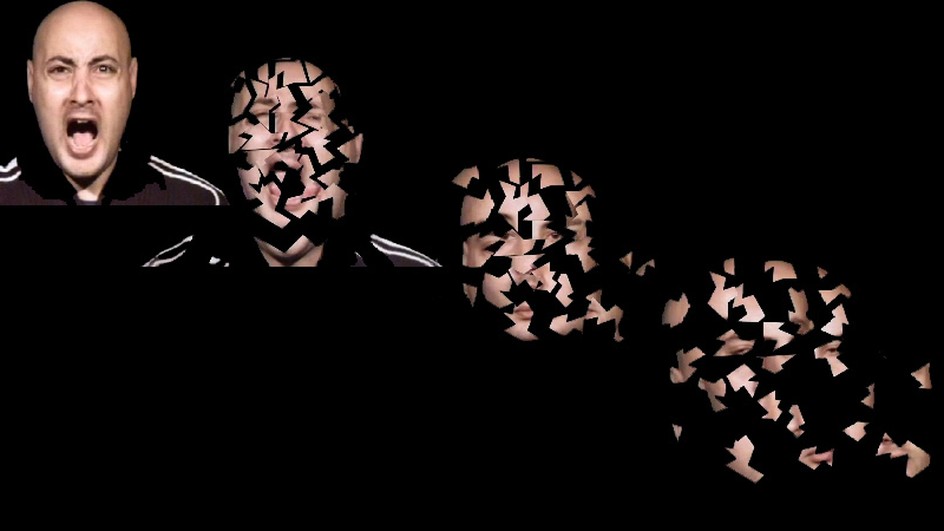
Artiste-professeur invité
2004 - 2005
Hicham Benohoud
Born in 1968 in Marrakech (Morocco)
Photographer and artist Hicham Benohoud was born in Marrakech, Morocco, where he lives and teaches visual arts. His main exhibitions include: Institut Français de Marrakech, 1998; Biennial of African Photography, Bamako (Mali, 2001); Paris Photo, Carrousel du Louvre (2003); « Version soft », Espace photographique Contretype, Brussels, 2004.
At first sight -- but isn't each vision of these images a kind of first sight? --, one could take Hicham Benohoud's world to be woven out of the coldest of nightmares, the kind in which a leaden silence underscores the presence of dreary ghosts. Yet, with time, the very idea of stage-setting, of the playfulness that goes with it, and the way it gets played out in this artist's works, brings out an unexpectedly humorous and infinitely personal poetry, a sober wit revealed in the positioning of bodies and objects as well as in the relations set up between them. This peculiar deadpan character, this toying with terror combine together to crackle the varnish of morbidity that is meant (but not really) to hide the smile of the child playing alone.
Behind their apparent simplicity and evidence, Hicham Benohoud's images manage to resist both commentary and analysis. They show without describing, they impose without making explicit, and thus attract us inexplicably into the mystery they craft and reveal -- and so, again and again, we go back to them without exhausting them. Their rigidity, their very construction cast us with more violence than any candid shot into a concrete universe, a three-dimensional space which the barren fantasy of the artist elegantly explores. The images freeze up a lapse of time which we can't seem to be able to define, and we remain in front of them as if confronted with the little fables of an allusive storyteller whose imagination only speaks of what he is making up. How, in these obviously constructed pictures, can the real surge up with such muted violence, summoning a discomfort which we can't attribute for sure to the situation, to the perception of the time evoked in the image, or to the permanent tension between fiction and tangible world expressed in these narrative frames?
The greatest quality of these photographs is that they resist, in all senses of the term, they cannot be reduced to any single discourse, they may seem 'literary', but they remain through and through visual. One is then left with an ever-unanswered question: how can images that are apparently so calm, obviously so soft, manage to imply such profound violence -- an invisible but very real violence, of the kind that affects us in our innermost without being in the least spectacular?
Christian Caujolle, artistic director of Agence VU and Galerie VU (Paris)
This text is an excerpt from the exhibition catalogue for « La salle de classe », Editions de l'œil.

